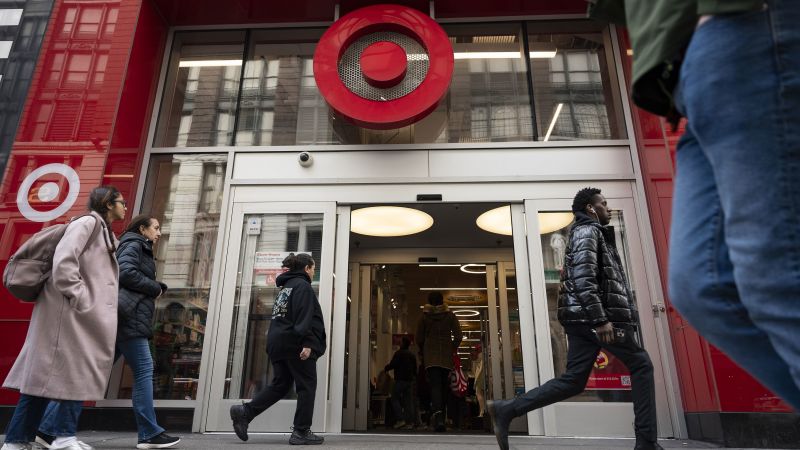Target DEI Backlash: Sales Plummet After Boycott
The recent backlash against Target's Pride month merchandise has sent shockwaves through the retail industry, sparking a heated debate about corporate social responsibility, consumer activism, and the delicate balance between inclusivity and profitability. Target's sales have reportedly plummeted following boycotts and protests, raising crucial questions about the long-term implications of engaging in DEI (Diversity, Equity, and Inclusion) initiatives. This article delves into the Target situation, analyzing the causes of the backlash, its impact on the company's bottom line, and the broader lessons learned for businesses navigating the complex landscape of social and political issues.
Understanding the Backlash: More Than Just Pride Merch
Target's Pride collection, featuring clothing and accessories from LGBTQIA+ designers and brands, became the focal point of intense criticism. While some praised the company for its inclusivity, a significant portion of consumers expressed outrage, citing concerns about the merchandise's design, perceived "indoctrination" of children, and a general feeling that the company had overstepped its boundaries. This backlash wasn't solely about the products themselves; it tapped into existing societal divisions and anxieties around gender identity, sexuality, and the role of corporations in social and political discourse.
The Role of Social Media and Amplification:
The speed and intensity of the backlash were significantly amplified by social media. Conservative commentators and influencers fueled the fire, sharing images and videos of the merchandise, often framing it in a negative or inflammatory light. This created a powerful echo chamber, where negative sentiment was rapidly disseminated and intensified, driving boycotts and protests. The ease with which misinformation and emotionally charged narratives spread online played a significant role in the scale of the reaction.
The Financial Fallout: Sales Figures and Market Impact
While Target hasn't released precise sales figures directly attributable to the backlash, numerous reports indicate a noticeable decline in sales, particularly in the period following the controversy. This suggests a tangible link between the boycott and a loss of revenue. Beyond immediate sales, the long-term impact on Target's brand reputation remains uncertain. The negative publicity could lead to decreased consumer trust and loyalty, potentially impacting future sales and market share.
Beyond Sales: The Cost of Brand Reputation
The financial impact extends beyond immediate sales figures. Damaging brand reputation can significantly impact a company's long-term prospects. Investors may react negatively, leading to decreased stock value. Moreover, attracting and retaining talented employees can become more challenging if the company is perceived as controversial or divisive. The negative publicity associated with the Target boycott could have far-reaching consequences for the company's overall success.
Lessons Learned: Navigating DEI in a Polarized Climate
The Target situation serves as a cautionary tale for other companies striving to implement robust DEI initiatives. While inclusivity is vital, businesses must carefully consider the potential for backlash and develop strategies to mitigate risks.
Key Takeaways for Businesses:
- Thorough Market Research: Understand your target audience and their sensitivities. Conduct thorough research to gauge potential reactions to DEI initiatives before implementation.
- Transparency and Communication: Openly communicate your intentions and the rationale behind DEI programs. Address concerns and criticisms proactively and respectfully.
- Strategic Partnerships: Collaborate with relevant community groups and organizations to ensure inclusivity efforts are authentic and well-received.
- Contingency Planning: Anticipate potential negative reactions and develop strategies to manage the fallout. This includes preparing communication plans and crisis management strategies.
- Focus on Inclusivity, Not Just Visibility: Authenticity matters more than performative allyship. DEI initiatives should be deeply integrated into a company's culture, values, and operations, not just a marketing campaign.
The Target DEI backlash highlights the complex challenges faced by companies attempting to navigate the increasingly polarized socio-political landscape. Striking a balance between embracing inclusivity and avoiding alienating significant portions of the consumer base requires careful planning, proactive communication, and a deep understanding of the potential consequences. The long-term effects of this incident will continue to unfold, providing valuable lessons for all businesses seeking to balance social responsibility and financial success.
